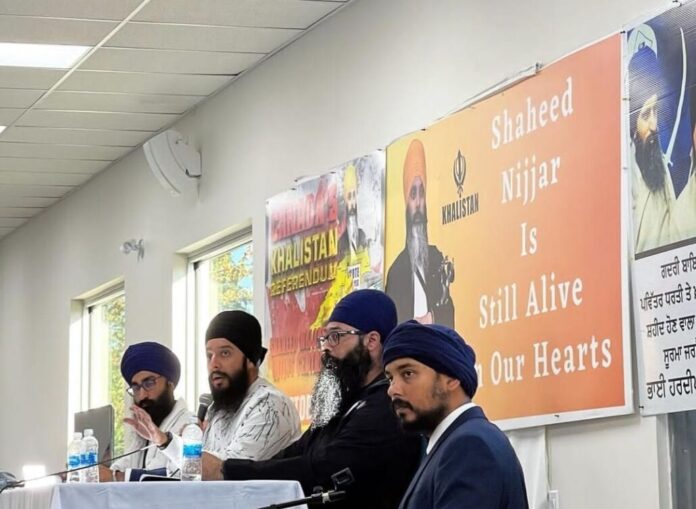
by Sudhanshu Roy 21 March 2024
India’s recent directive to restrict access to a Canadian documentary probing the assassination of Sikh activist Hardeep Singh Nijjar in Vancouver marks yet another chapter in the complex saga of diplomatic tensions and freedom of expression. The decision to block the documentary, titled “Contract to Kill,” underscores the intricate interplay between geopolitical sensitivities, media portrayal, and the pursuit of justice in an interconnected global landscape.
The backdrop of strained relations between India and Canada adds depth to the significance of this recent development. Tensions between the two nations have simmered for years, often flaring up over issues ranging from trade disputes to human rights concerns. However, it is the portrayal of the Indian government and its leadership, particularly Prime Minister Narendra Modi, in international media that has been a consistent flashpoint.
India’s previous invocation of emergency laws to prevent the distribution of the BBC documentary “India: The Modi Question” in 2023 serves as a precedent for its recent action regarding the documentary on Hardeep Singh Nijjar’s assassination. This pattern of response to media content critical of the Indian government underscores its sensitivity to external scrutiny and its willingness to use legal mechanisms to safeguard its image.
Hardeep Singh Nijjar’s assassination and the subsequent investigation have been a focal point of contention between Canada and India, further exacerbating existing tensions. Prime Minister Justin Trudeau’s acknowledgment of “credible allegations” implicating Indian government agents in Nijjar’s killing during a parliamentary session added fuel to the fire. India’s swift denial of these allegations and its subsequent efforts to block access to the documentary reflect its determination to counter narratives that challenge its official stance.
YouTube’s compliance with India’s request to block access to the documentary within the country highlights the challenges faced by multinational tech companies in navigating the regulatory frameworks of different nations. The Information Technology Act of 2000, cited by the Indian government as the legal basis for its directive, grants authorities broad powers to regulate online content. This raises concerns about censorship and the potential infringement of freedom of expression, particularly in cases where content intersects with sensitive political issues.
Similarly, X’s response to India’s request reflects the delicate balance between regulatory compliance and advocacy for freedom of expression. While acknowledging the legal obligation to withhold access to the documentary in India, X expressed disagreement with the action, emphasizing the importance of preserving the principles of free speech. The platform’s engagement with Indian authorities underscores the complexities of navigating conflicting legal and ethical considerations in a rapidly evolving digital landscape.
The documentary itself offers a compelling narrative of Nijjar’s assassination, weaving together security footage, testimonies, and expert analysis to shed light on the circumstances surrounding his death. CBC’s commitment to journalistic integrity, as articulated by Chuck Thompson, underscores the importance of thorough research and balanced representation in investigative journalism. However, the lack of conclusive evidence and arrests in the case raises questions about the efficacy of the investigation and the challenges of pursuing justice in cases involving allegations of state-sponsored violence.
New Zealand’s Deputy Prime Minister Winston Peters’ recent comments casting doubt on Canada’s allegations further complicate the narrative surrounding Nijjar’s assassination. Peters’ emphasis on the need for conclusive evidence underscores the complexities of international diplomacy and the challenges of navigating sensitive issues involving multiple stakeholders. His remarks highlight the importance of allowing the investigative process to unfold while maintaining transparency and accountability.
In conclusion, India’s decision to block access to the documentary on Nijjar’s assassination encapsulates the intricate interplay between diplomatic sensitivities, media portrayal, and the pursuit of justice in a globalized world. The incident underscores the challenges faced by tech companies, media organizations, and governments in navigating regulatory frameworks while upholding principles of free speech and transparency. As the investigation into Nijjar’s assassination continues, it serves as a sobering reminder of the complexities inherent in addressing transnational challenges and the importance of fostering international cooperation and dialogue.

